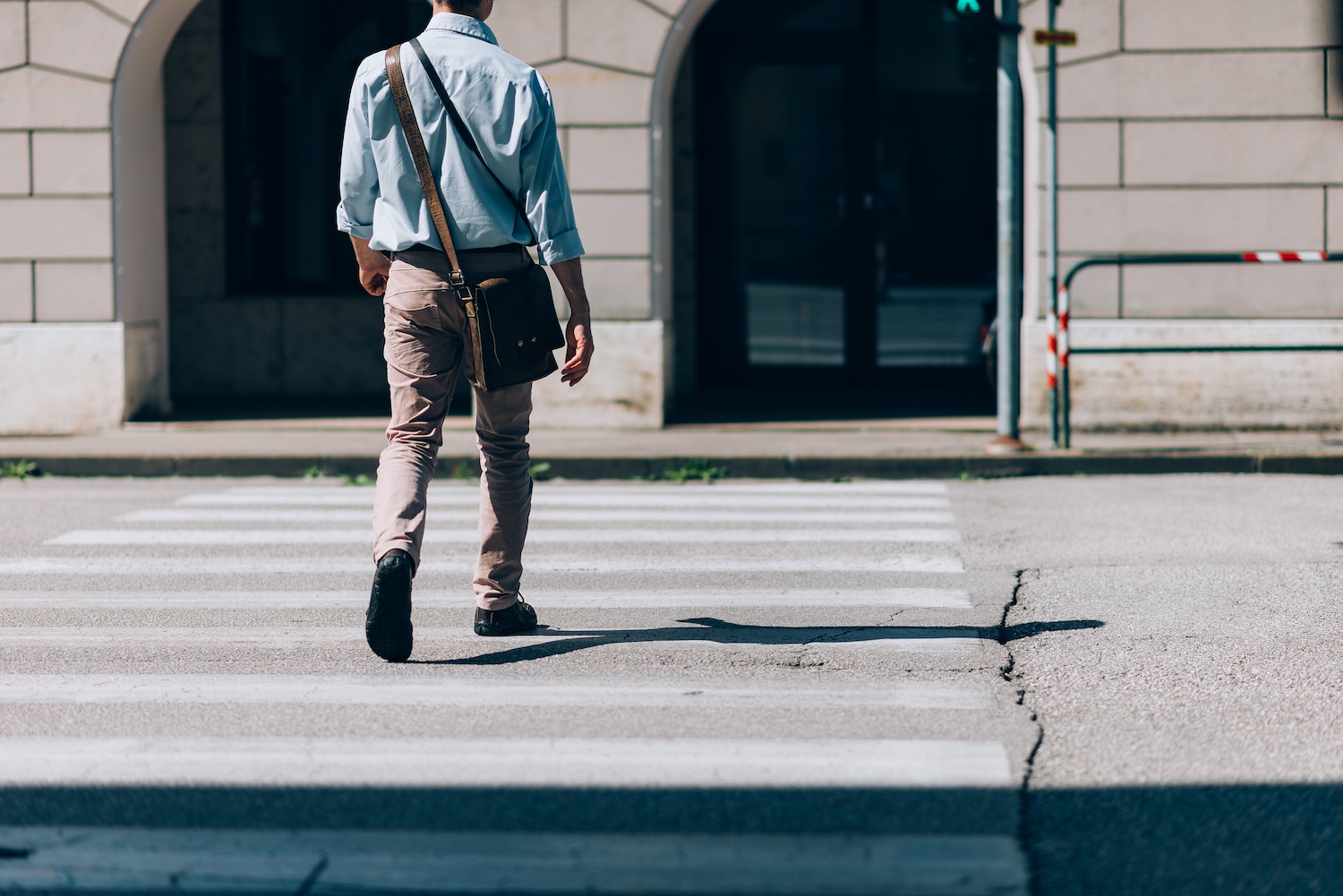My friend Bobby Winters, who is both a mathematician and a Methodist, was in the capital of Paraguay doing something academic, and discovered that the place he’s staying had no street number. The address people there use relates his street to another, like “On Smith Street near the corner of Jones Avenue.”
This must be hard for someone with the mathematician’s insight into the value of numbers, but he says it works. It’s a big city, of a million people, but a cabbie who picked them up in downtown knew exactly where to go.
Bobby walked around Asunción and called it an adventure. This must be his Methodist side, as his church began with ministers riding around England on horseback. In any case, Bobby’s walking tells us something about the Catholic life.
Looking carefully
“Street signs are rare compared to the U.S.,” he writes, “and you don’t always want to be checking the map on your phone because it’s never a good idea in any city to let strangers know that you don’t know where you are. You learn to navigate by landmarks.”
You have to look more carefully at the world around you. “When you give up GPS and even give up street names, you pay attention to where the construction is, which yards have dogs, what the businesses are, where the sidewalks are good, where the new paint is. You tune in to your environment. You are more alive than you ever have been.”
Not many Americans will do this in another country, but Bobby’s an interesting man. He looks like the math professor from an old movie, but he acts a lot like the explorer from another old movie. “Getting around by learning the neighborhood is a personal choice I’ve made,” he writes. “I don’t know when I will pass this way again, if ever, and I want to soak up every moment.”
Bobby wants to look at the city, and he’s found a way to force himself to look harder and more carefully than he would have otherwise. He could tell himself to look carefully while he rides around in a taxi, but like most of us, he’d probably forget. But walking around, he has to look. Looking’s what you do when walking.
The limitations of our seeing
Here’s the lesson I draw from the foreign adventures of my Methodist brother. What Bobby does for himself, the Catholic life does for us. It forces us to look harder and see more than we would, left to ourselves.
The poet T.S. Eliot, a Christian, wrote in his poem “Burnt Norton” that “Humankind cannot bear very much reality.” Humankind can’t see very much reality, either. We especially can’t see ourselves very well. We need help doing that.
We may think much too well of ourselves or much too badly of ourselves, or both, mixing self-flattery with self-blame. Us, as we are, we don’t naturally see well.
We can see more than we see naturally, but we have to work at it. We have to create disciplines that make us see, the way Bobby made himself see the city by walking rather than riding. In the Catholic case, we need to accept disciplines others have developed that make us see.
It’s about God
The penitential disciplines give us the most obvious examples. St. Paul says that all our righteousness is as filthy rags. Most of us don’t look at ourselves that way. We’re happy with the things we do well, and exaggerate how many we do well and how well we do them, and have excuses for the things we don’t. (Others have the opposite problem, which is equally unrealistic but usually more painful.)
The examination of conscience, especially if you use it every day, forces you to see your sins and failings more clearly. It gives you specific questions, and you have to answer them. You can’t get away with a general statement that you haven’t been as kind or as giving as you should be, with a couple examples. The examination helps you see specifically how you haven’t been as kind or as giving.
And seeing who you are, you see more clearly who God is and what he does for you. Looking at yourself is not about you, it’s about him.
I’ve talked about seeing ourselves more clearly, but we don’t see the Faith very clearly, either. We miss many of the details, especially the depths and the intricacies. And we don’t see clearly the Thing (as Chesterton called it) as a whole. The Mass helps us see the whole thing. But that’s another column.
We must practice looking, really looking at ourselves the way Bobby looked at Asunción. We need practical ways to push ourselves to do that, and those the Church provides.

